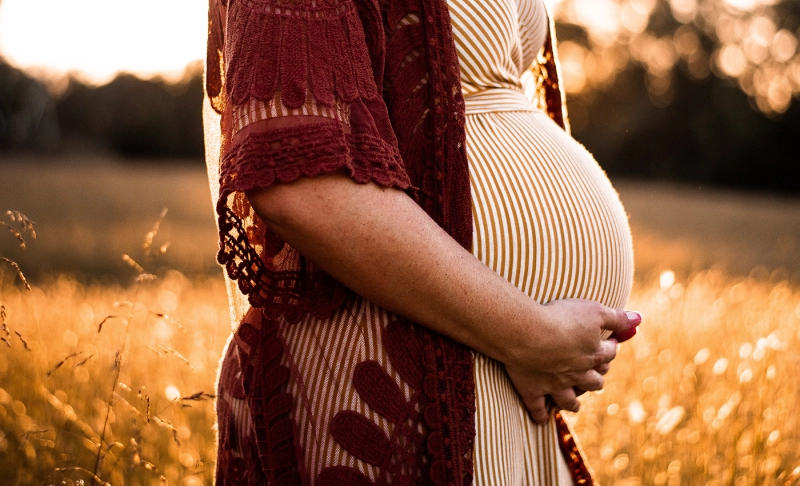By: Ranjini K
June 14 2021

Following vaccination, there are no reports of adverse effects during pregnancy, and there is no established link between a miscarriage and a vaccine.
Following vaccination, there are no reports of adverse effects during pregnancy, and there is no established link between a miscarriage and a vaccine.There have been calls to designate pregnant women as a priority category for vaccination in some countries because they have a higher chance of becoming critically ill with COVID-19. Amid the vaccination drive, some blog articles claimed an increased risk of a miscarriage among expecting mothers after receiving the COVID-19 vaccine. But, there is no evidence for this claim. Between January 2020 and October 2020, the U.S. Centers for Disease Control and Prevention (CDC) reviewed data from over 400,000 symptomatic and lab-confirmed COVID-19 cases in women; 5.7 percent of the women in the study were pregnant. Compared to non-pregnant women, pregnant women were substantially more likely to be hospitalized to an intensive care unit and get invasive ventilation in the study published by CDC on November 6, 2020. Because pregnant women were excluded from clinical studies, there was a shortage of clinical data for this population during the early months of COVID-19 vaccination. As a result, the CDC stated that pregnant people might choose to get vaccinated independently. But, in late April 2021, preliminary findings from a study involving over 35,000 pregnant individuals were published by the New England Journal of Medicine, which found that mRNA COVID-19 vaccines posed no apparent safety issues. The study "Preliminary Findings of mRNA COVID-19 Vaccine Safety in Pregnant Persons," published on April 21, 2021, reported initial findings on the safety of mRNA vaccines on pregnant people. Between December 14, 2020, and February 28, 2021, 35,691 v-safe pregnant participants were included in the study. The majority of the participants were between the ages of 25 and 34. Fatigue, soreness at the injection site, myalgia (pain in a muscle), and headache were the most prevalent side effects recorded. 86 percent of the 827 individuals who finished pregnancy had a live birth, whereas 12.6 percent had a spontaneous abortion. Approximately 92 percent of these spontaneous abortions occurred before the 13th week of pregnancy. Roughly 98 percent of live births were reported in people who got the immunization in the third trimester. According to the findings, some pregnant women in the United States choose to get vaccinated against COVID-19. The adverse responses reported by pregnant and non-pregnant people were similar. The proportion of vaccinated women who have a negative pregnancy outcome is comparable to the overall population before COVID-19. The COVID-19 vaccines do not appear to offer any obvious safety risks for pregnant women in the study. Referring to the study, the CDC Director Rochelle Walensky said the public health agency "recommends that pregnant people receive the COVID-19 vaccine" on April 23, reports NPR. The Guardian reports that pregnant women in the United Kingdom were permitted to get vaccinated simultaneously. Based on their age and clinical risk group, all pregnant women would be administered the Pfizer or Moderna vaccine. The Healthline reports that v-safe COVID-19 Vaccine Pregnancy Registry, preliminary data says that "no increased risk of preterm birth, low-birth weight, miscarriage, or neonatal death" in babies born to women who received Moderna or Pfizer COVID-19 vaccines. Dr. Eran Bornstein, the Center for Maternal-Fetal Medicine director at Lenox Hill Hospital in New York, told Healthline that "I think that this is a very reassuring study." He added, "In the adverse outcomes that they looked at, there was no signal to show an increased risk compared to historical controls. There was no signal of an abnormal outcome that stands out compared to what is expected in pregnancy.'' According to CDC, there were no safety concerns in pregnant animals or their babies after receiving a Moderna, Pfizer-BioNTech, or J&J/Janssen COVID-19 vaccine before or during pregnancy. There are no reports of a cause-and-effect relationship between COVID-19 vaccines and miscarriage rates; hence the claim is false. The COVID-19 pandemic has given rise to a lot of potentially dangerous misinformation. For reliable advice on COVID-19 including symptoms, prevention and available treatment, please refer to the World Health Organisation or your national healthcare authority.